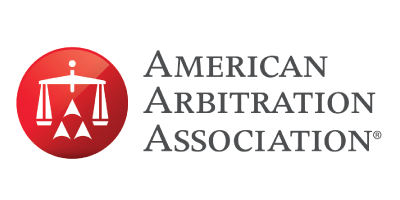Opening Numbers and the The Zone of Acceptance — How Initial Positions Have a Profound Impact on the Nature of Bargaining.
by Judge Elaine Gordon (ret.)

Elaine Gordon is a retired Superior Court judge and founder of Gordon ADR. She is a member of the National Academy of Distinguished Neutrals and a Distinguished Fellow of the International Academy of Mediators.
A Note from Judge Gordon
Spring is right around the corner....
I have been asked to make a presentation in April at the ABA convention in New York on the topic I write about in this month’s newsletter: “Opening Numbers in Mediation.” As the presentation is still a work in progress, any ideas and comments you have are most welcome.
I continue to be very grateful for the trust and confidence you have shown by asking me to mediate or arbitrate your disputes. The work is both challenging and rewarding.
As Gordon ADR closes in on almost 700 cases, it’s still hard to believe I retired from the bench in August, 2011. It seems like yesterday when I made the decision to retire and enter the unknown world of ADR.
I am also grateful to the American Arbitration Association for designating me as one of six “Master Mediators” in the New England region. I really enjoy the diversity of cases sent to me by the AAA and meeting outstanding lawyers from around the United States.
The widespread use of alternate dispute resolution continues to increase and shows no sign of slowing down. The old truism of ease, speed and convenience combined with lower costs and confidentiality, make ADR a wise option for settling many disputes.
I wish you continued health and happiness in 2016.
I doubt many of us have seen a dispute settle at a mediation session based on the opening number.
Because no one expects the matter to resolve in the first round of bargaining, too little attention is paid to the crafting of opening positions. Some lawyers view opening numbers as irrelevant.
They feel it is just an arbitrary number because “you have to start somewhere.”
But in practice, initial positions can have a profound impact on the nature of the bargaining. A poor start may determine whether the case settles at all, or at what number it finally resolves.
Oftentimes, ill-conceived numbers result in exasperation, anger, accusations of bad faith and hurt feelings. Even if opposing counsel does not get up and leave, an opportunity may have been lost to establish an atmosphere of good faith.
Part of the responsibility of a skilled mediator is to assist counsel in setting the parameters for a successful mediation in the earliest phase of the process.
This is one reason confidential submissions are requested in advance of the mediation. These submissions provide the mediator with valuable information to understand the case and to assist the parties in their negotiation.
Research by behavioral economists has shown that the first “reasonable number proposed” in a negotiation, (i.e. a number which is not absurdly high from the defendant’s perspective or absurdly low from the plaintiff’s perspective) will set the parameters for bargaining. The settlement number will usually fall somewhere near the middle between the two extremes. Researchers call this the zone of acceptance. Of course, the plaintiff’s number will be at the higher end of the zone and the defendant’s will be at the lower end.
But most interesting, the research shows that it is to your advantage to establish a reasonable range at the outset in order to anchor the negotiation. As the plaintiff, opening with a high number that is aspirational, but not unreasonable, sets the “anchor.” The anchor is the number from which the other side unconsciously starts to deal.
The challenge for lawyers when deciding where to anchor negotiations is a strategic one: Will the number be reasonable enough to have weight yet leave enough room for further negotiation leading to settlement?
As I have witnessed many times, an opening number that cannot be objectively justified will not generate the “anchor and adjustment” reaction from the other side that you want. It might, at a minimum, be counterproductive and may even result in irreversible damage to continued discussion.
You may also be interested in ...































